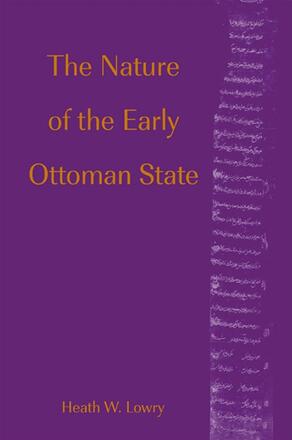
The Nature of the Early Ottoman State
Alternative formats available from:
A revisionist interpretation of the early origins of the Ottoman Empire.
Description
Drawing on surviving documents from the fourteenth and fifteenth centuries, The Nature of the Early Ottoman State provides a revisionist approach to the study of the formative years of the Ottoman Empire. Challenging the predominant view that a desire to spread Islam accounted for Ottoman success during the fourteenth-century advance into Southeastern Europe, Lowry argues that the primary motivation was a desire for booty and slaves. The early Ottomans were a plundering confederacy, open to anyone (Muslim or Christian) who could meaningfully contribute to this goal. It was this lack of a strict religious orthodoxy, and a willingness to preserve local customs and practices, that allowed the Ottomans to gain and maintain support. Later accounts were written to buttress what had become the self-image of the dynasty following its incorporation of the heartland of the Islamic world in the sixteenth century.
Heath W. Lowry is Atatürk Professor of Ottoman and Modern Turkish Studies at Princeton University and the author of Studies in Defterology: Ottoman Society in the Fifteenth and Sixteenth Centuries.
Reviews
"By combining his attentive re-reading of Ottoman primary sources with his interpretation of various European narrative sources on the early Ottoman period, Lowry manages not only to uncover critical errors in the reading of some primary sources but also to suggest possible reinterpretations of some others. " — MIT Electronic Journal of Middle East Studies
"Lowry meticulously reexamines the historiography of the origins of the Ottoman Empire, bringing to light a number of unsettling errors in the reading of critical primary sources and offering new interpretations based on his reassessments. This book will inevitably be standard reading for those engaged in the field. " — Jane Hathaway, author of The Politics of Households in Ottoman Egypt: The Rise of the Qazdaglis